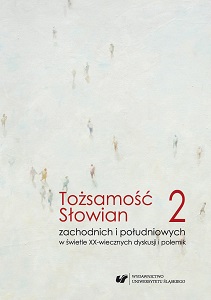Serbian and Croatian Language Discourse in the Twentieth Century (Selected Issues)
Serbian and Croatian Language Discourse in the Twentieth Century (Selected Issues)
Author(s): Maria Cichońska, Vesna Jovanović-Mihaylov
Subject(s): South Slavic Languages
Published by: Wydawnictwo Uniwersytetu Śląskiego
Keywords: language discourse; Serbs; Croats; Novi Sad Agreement;
Summary/Abstract: The article discusses selected aspects of language discourse present in Communist Yugoslavia after the Second World War, when the federation of nations was created by Josip Broz Tito. One of the major problems of that time that required regulation was the language situation of this multination state of Serbia, Croatia, Bosnia, Herzegovina and Montenegro, which before the Second World War (and earlier) used an ethnic language based on the Newštokavian dialect. A language survey was administered in the early 1950s with the aim of determining the future linguistic policy of Yugoslavia. It resulted in signing the Novi Sad Agreement, whose ten points are briefly presented in the article. An analysis of the discourse based on Serbian and Croatian authors (1947–1955) is presented in relation to its selected aspects, such as semantic and pragmatic ones as expressed by the framework of discourse, for example as some of, about something, with something, and of something among others.
Book: Tożsamość Słowian zachodnich i południowych w świetle XX-wiecznych dyskusji i polemik. T. 2 Język
- Page Range: 13-25
- Page Count: 13
- Publication Year: 2018
- Language: English
- Content File-PDF

